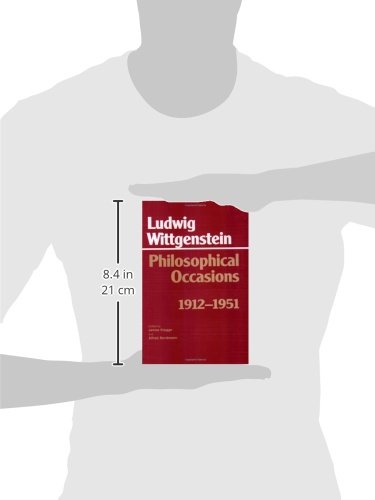Tractatus Logico-Philosophicus (Routledge Classics)
Category: ludwig wittgenstein

The Tractatus Logico-Philosophicus, perhaps the most significant philosophical work of the twentieth century, was the only work published during the lifetime of its author, Ludwig Wittgenstein. Composed in a series of meticulously numbered and concise paragraphs of exceptional brilliance, the work captivated the imagination of an entire generation of philosophers. For Wittgenstein, logic was a means to conquer a reality that was inherently elusive and unobtainable. He famously summarized the essence of the book in the following words: "What can be said at all can be said clearly; and what we cannot talk about we must pass over in silence."
The Tractatus Logico-Philosophicus was translated with the utmost care by David Pears and Brian McGuinness, receiving widespread critical acclaim for the quality of their work. The volume is prefaced by Bertrand Russell's original introduction to the first English edition, adding further scholarly weight and significance to this seminal philosophical text.
Wittgenstein's Tractatus Logico-Philosophicus was a groundbreaking and influential work that challenged the prevailing philosophical assumptions of its time. Through his exploration of the nature of language, logic, and the limits of what can be meaningfully expressed, Wittgenstein offered a radically new perspective on the fundamental questions of human existence and the nature of reality.
The work's concise and aphoristic style, with its numbered propositions and meticulously crafted arguments, has been widely recognized as a hallmark of Wittgenstein's philosophical approach. By distilling complex ideas into a series of tightly-woven logical statements, the Tractatus Logico-Philosophicus presented a compelling and highly original vision of the world, one that sought to delineate the boundaries of what can be known and expressed through language.
The influence of the Tractatus Logico-Philosophicus on subsequent philosophical thought cannot be overstated. It has been the subject of intense scholarly debate and interpretation, with philosophers and thinkers from diverse backgrounds grappling with the work's profound implications for our understanding of logic, language, and the nature of reality.
The meticulous translation by Pears and McGuinness has played a crucial role in the dissemination and appreciation of the Tractatus Logico-Philosophicus to a wider audience. By rendering Wittgenstein's complex and often cryptic prose into clear and accessible English, this landmark translation has helped to elucidate the work's core ideas and ensure its continued relevance and impact within the philosophical canon.
Bertrand Russell's introductory essay, included in the volume, further enhances the scholarly value of this edition. As a leading figure in the philosophical landscape of the time, Russell's insights and analysis of the Tractatus Logico-Philosophicus provide valuable context and critical perspective, shedding light on the work's historical significance and its place within the broader philosophical tradition.
In conclusion, the Tractatus Logico-Philosophicus stands as a testament to the power of rigorous and innovative philosophical thought. Its enduring influence and the continued scholarly attention it receives are a testament to the depth and complexity of Wittgenstein's ideas, as well as the exceptional quality of the Pears and McGuinness translation that has brought this seminal work to a global audience.
product information:
| Attribute | Value | ||||
|---|---|---|---|---|---|
| publisher | Routledge; 2nd edition (May 18, 2001) | ||||
| language | English | ||||
| paperback | 142 pages | ||||
| isbn_10 | 0415254086 | ||||
| isbn_13 | 978-0415254083 | ||||
| item_weight | 5.6 ounces | ||||
| dimensions | 5.08 x 0.32 x 7.79 inches | ||||
| best_sellers_rank | #642,976 in Books (See Top 100 in Books) #507 in Philosophy of Logic & Language #1,096 in Modern Western Philosophy #20,118 in Unknown | ||||
| customer_reviews |
|


















